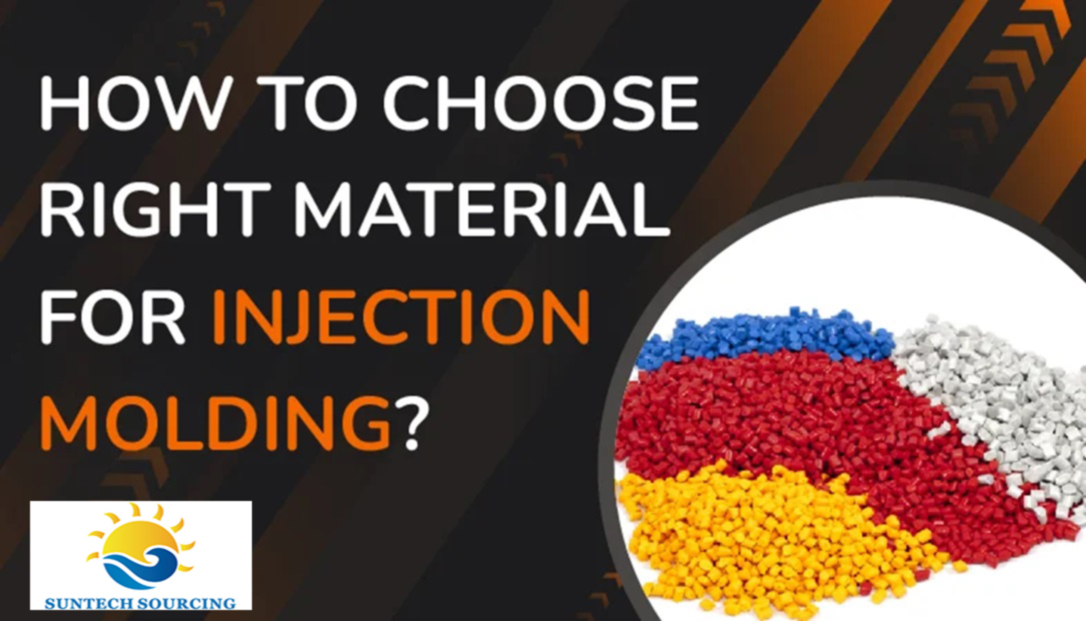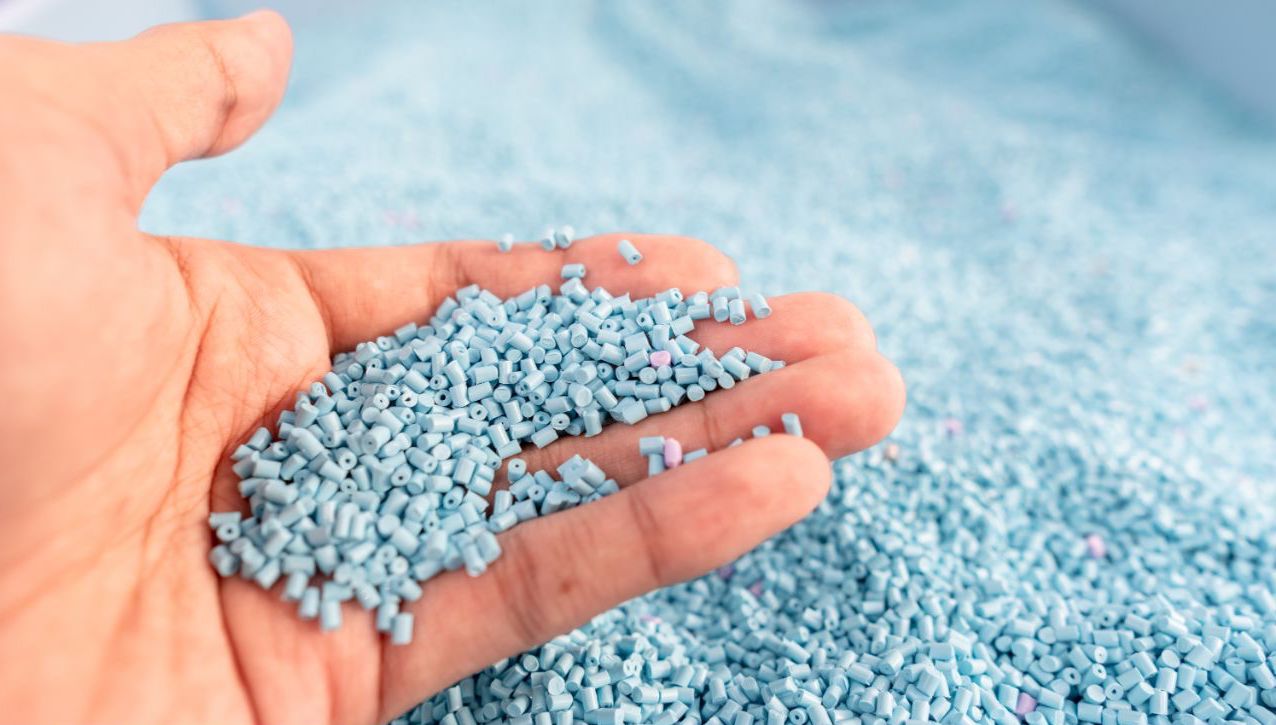Injection Molding Materials: Choosing the Right One for Your Project

Choosing the right injection molding materials is crucial for your project’s success. The selection process impacts the product’s quality, durability, and cost. This blog post will guide you through the various types of injection molding materials and help you make an informed decision.
What is Injection Molding?
Injection molding is a manufacturing process. It involves injecting molten materials into a mold. Once cooled, the material solidifies and takes the shape of the mold. This process is widely used in mass production. It is efficient and cost-effective.
Common Injection Molding Materials
Choosing the right injection molding materials depends on your project’s requirements. Here are some common materials:
- Thermoplastics: These are widely used. They include polypropylene, polyethylene, and polystyrene.
- Thermosets: These are less common but offer unique properties. Examples include phenolic and epoxy resins.
- Elastomers: These are rubber-like materials. They include silicone and thermoplastic elastomers.
Factors to Consider When Choosing Injection Molding Materials
Several factors influence the choice of injection molding materials. Here are the key considerations:
- Mechanical Properties: The material’s strength, flexibility, and durability are crucial.
- Thermal Properties: The material’s ability to withstand high temperatures is important.
- Chemical Resistance: Some projects require materials resistant to chemicals and corrosion.
- Cost: Budget constraints can influence material selection.
Popular Thermoplastic Injection Molding Materials
Thermoplastics are the most common injection molding materials. They are versatile and recyclable. Here are some popular thermoplastics:
Polypropylene (PP)
Polypropylene is a versatile and widely used thermoplastic. It is lightweight and offers good chemical resistance. It is ideal for packaging, automotive parts, and consumer goods.
Benefits of Polypropylene
- Lightweight and durable
- Resistant to chemicals and moisture
- Low cost and easy to mold
Polyethylene (PE)
Polyethylene is another common thermoplastic. It is used in various applications. It is known for its flexibility and toughness.
Benefits of Polyethylene
- High impact resistance
- Flexible and durable
- Good chemical resistance
Polystyrene (PS)
Polystyrene is a rigid and inexpensive thermoplastic. It is often used in disposable products and packaging.
Benefits of Polystyrene
- Low cost and easy to process
- Good dimensional stability
- Excellent clarity for transparent products
Specialty Thermoplastics for Injection Molding
Some projects require specialty thermoplastics. These materials offer unique properties.
Acrylonitrile Butadiene Styrene (ABS)
ABS is a strong and durable thermoplastic. It is commonly used in automotive parts and consumer electronics.
Benefits of ABS
- High impact resistance
- Good heat resistance
- Excellent machinability
Polycarbonate (PC)
Polycarbonate is a transparent and tough thermoplastic. It is used in safety glasses, CDs, and electronic components.
Benefits of Polycarbonate
- High impact resistance
- Excellent optical clarity
- Good heat resistance
Nylon (Polyamide)
Nylon is a strong and wear-resistant thermoplastic. It is used in automotive parts, textiles, and industrial components.
Benefits of Nylon
- High strength and durability
- Excellent wear resistance
- Good chemical resistance
Thermoset Injection Molding Materials
Thermosets are less common but offer unique properties. They are used in high-heat and high-stress applications.
Phenolic Resins
Phenolic resins are strong and heat-resistant thermosets. They are used in electrical components and automotive parts.
Benefits of Phenolic Resins
- High heat resistance
- Excellent electrical insulation
- Strong and durable
Epoxy Resins
Epoxy resins are versatile and strong thermosets. They are used in adhesives, coatings, and composite materials.
Benefits of Epoxy Resins
- High strength and durability
- Excellent adhesion properties
- Good chemical resistance
Elastomers for Injection Molding
Elastomers are rubber-like materials. They offer flexibility and elasticity. They are used in seals, gaskets, and flexible parts.
Silicone Elastomers
Silicone elastomers are flexible and heat-resistant. They are used in medical devices and kitchenware.
Benefits of Silicone Elastomers
- High heat resistance
- Excellent flexibility
- Good biocompatibility
Thermoplastic Elastomers (TPE)
TPEs combine the properties of thermoplastics and elastomers. They are used in automotive parts and consumer products.
Benefits of TPEs
- Flexible and durable
- Easy to process
- Good chemical resistance
Factors Affecting Injection Molding Material Selection

Choosing the right injection molding materials involves considering several factors. Here are some key considerations:
Mechanical Properties
The material’s strength, flexibility, and durability are crucial. Different materials offer varying levels of these properties.
Thermal Properties
The material’s ability to withstand high temperatures is important. Some materials have better thermal resistance than others.
Chemical Resistance
Some projects require materials resistant to chemicals and corrosion. This is important for applications exposed to harsh environments.
Cost
Budget constraints can influence material selection. Some materials are more cost-effective than others.
Application Requirements
The specific requirements of your project will dictate the choice of materials. Consider the end-use and performance needs.
Advantages of Using the Right Injection Molding Materials
Choosing the right injection molding materials offers several advantages. Here are some key benefits:
- Improved Product Quality: The right materials ensure better product performance and durability.
- Cost-Effectiveness: Selecting cost-effective materials can reduce production costs.
- Efficiency: Proper materials can enhance the efficiency of the manufacturing process.
- Versatility: Different materials offer varying properties, making them suitable for diverse applications.
FAQs about Injection Molding Materials

What are injection molding materials?
Injection molding materials are substances used in the injection molding process. They include thermoplastics, thermosets, and elastomers.
How do I choose the right injection molding materials?
Consider factors like mechanical properties, thermal properties, chemical resistance, cost, and application requirements.
What are the most common injection molding materials?
Common materials include polypropylene, polyethylene, polystyrene, ABS, polycarbonate, nylon, phenolic resins, epoxy resins, silicone elastomers, and TPEs.
What are the advantages of using thermoplastics?
Thermoplastics are versatile, recyclable, and easy to process. They offer a wide range of properties suitable for various applications.
Why are thermosets used in high-heat applications?
Thermosets have excellent heat resistance and maintain their properties at high temperatures, making them ideal for high-heat applications.
Conclusion
Choosing the right injection molding materials is crucial for your project’s success. Consider the mechanical properties, thermal properties, chemical resistance, cost, and specific application requirements. By making an informed decision, you can ensure better product quality, cost-effectiveness, and efficiency in your manufacturing process.
Key Takeaways
- Injection molding materials include thermoplastics, thermosets, and elastomers.
- Consider mechanical properties, thermal properties, chemical resistance, cost, and application requirements.
- Popular thermoplastics include polypropylene, polyethylene, polystyrene, ABS, polycarbonate, and nylon.
- Thermosets like phenolic and epoxy resins offer unique properties.
- Elastomers provide flexibility and elasticity for various applications.
Choosing the right injection molding materials can make a significant difference in your project’s success. Take the time to evaluate your options and select the best materials for your needs.
Import from China Guide
For beginners who don’t know what to buy & sell, have 0 experience about importing from China, you can get all questions answered in this tutorial.
(10 video courses included)


